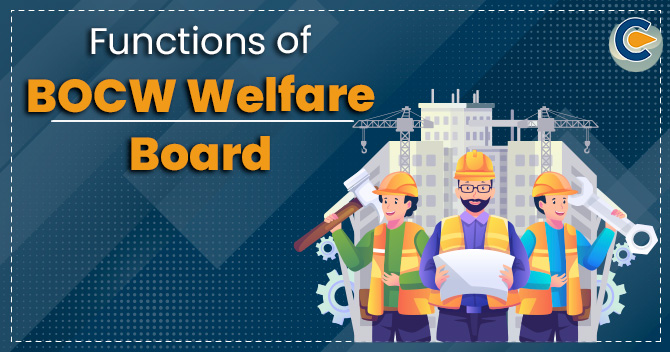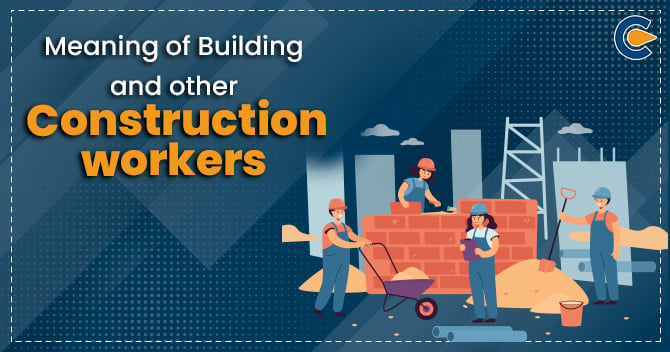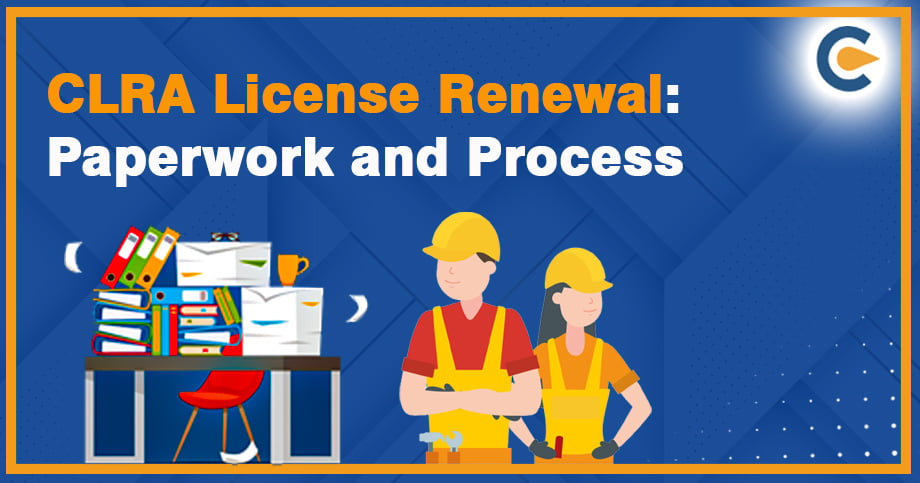The Building and Other Construction Workers Act, 1996, also known as the BOCW Act 1996, was enacted for the purpose of governing the activities related to the construction of buildings and for the welfare of the construction workers. The BOCW Act has mandated the establishment of the Building and Other Construction Workers Welfare Board, also known as the BOCW Welfare Board, in every State. The Welfare Board runs in accordance with a “Cess”, which is imposed on the payable tax that is separate from the taxable income; it also can be explained as a surcharge of the tax being paid, of 1 % of the total cost of the applicable project of construction.
Upon registration of labourers under the Welfare Board, they are issued a “Labour Card”, which is defined as an identity card, designed similar to a passbook, that contains their details regarding identification and employment.
The Welfare Board grants multiple benefits that can be in regard to insurance for health, life insurance, financial assistance for marriage, pregnancy, child care, pension, etc.
The BOCW Welfare Board
The laws applicable to BOCW Welfare Board are stated in detail in Chapter V of the BOCW Act 1996 from Section 18 to Section 28, which discusses various essential factors of the Welfare Board mentioned below –
- The Constitution of the Welfare Board in Every State
- The Layout of Welfare Board Personnel
- Board Meetings
- Vacancy System and the Proceedings Conducted by the Welfare Board
- Functions of the Welfare Board
- The Procedure of Granting Loans by the Central Government of India
- The Welfare Board Funding System
- Budget System
- Annual Report
- The Procedure of Conducting Accounting and Audits
What are the Functions of the BOCW Welfare Board?
The Function of the BOCW Welfare Board is stated in Section 22 of the BOCW Act 1996[1]. The below mentioned are the essential functions of the Welfare Board in accordance with the BOCW Act 1996 –
- The Welfare Board provides assistance such as financial aid for medical purposes in case of an accident that occurs at the worksite affecting the applicable labourer.
- The Welfare Board provides benefits of pension to labourers registered under the Welfare Board who are of age 60 and above.
- The Welfare Board provides assistance in sanctioning loans and needed advances up to a specific amount along with the set terms and conditions in accordance with the applicable State Welfare Board to the registered labourer for the purpose of building their personal home.
- The Welfare Board provides assistance in the payment of the premia of any applicable Group Insurance Scheme as deemed necessary.
- The Welfare Board provides assistance in regard to financial aid for the children of the registered labourers.
- The Welfare Board provides assistance in regard to financial aid for medical purposes of any necessary treatment or major surgery of the registered labourer and their dependants.
- The Welfare Board provides assistance with respect to maternity benefits for registered female labourers.
- The Welfare Board provides assistance in enacting needed provisions as deemed necessary for the improvement of needed measures and facilities for the welfare of the registered labourers of the applicable State deemed necessary.
- The Welfare Board provides assistance by providing financial aid for granting of loans or needed subsidiaries to the applicable local authority or to the applicable employer if any Scheme is enacted by the State Government that is in relation to the welfare of the labourers for any infrastructure being constructed in the applicable State.
- The Welfare Board provides assistance in the annual payment of Grants-In-Aid for applicable local authorities or applicable employers who provide satisfactory proof to the Welfare Board that the specified maintenance of standards and welfare measures were taken that was in benefit of the labourers and their dependants of the construction site if deemed applicable, in which the payable amount is applicable for whichever is less that cannot be more than –
- The amount that has been spent for the providence of the welfare measures taken as specified by the State Government;
- The prescribed amount.
The Grant-In-Aid is not applicable for payment if the applicable local authorities or applicable employers have spent less amount for the maintenance of standards and welfare measures were taken that were in benefit of the labourers and their dependants than the prescribed amount by the government.
Conclusion
There is still a massive segment of labourers that are not yet registered under the BOCW Welfare Board, either in view of an absence of awareness or laxity on their part. To address this, Delhi and Uttar Pradesh BOCW Welfare Boards conducted Registration Drives through the recent Pandemic to build the ambit of inclusion under the Welfare Boards.
Read our Article:Contract Labour Act: A Synopsis of Key Provisions













